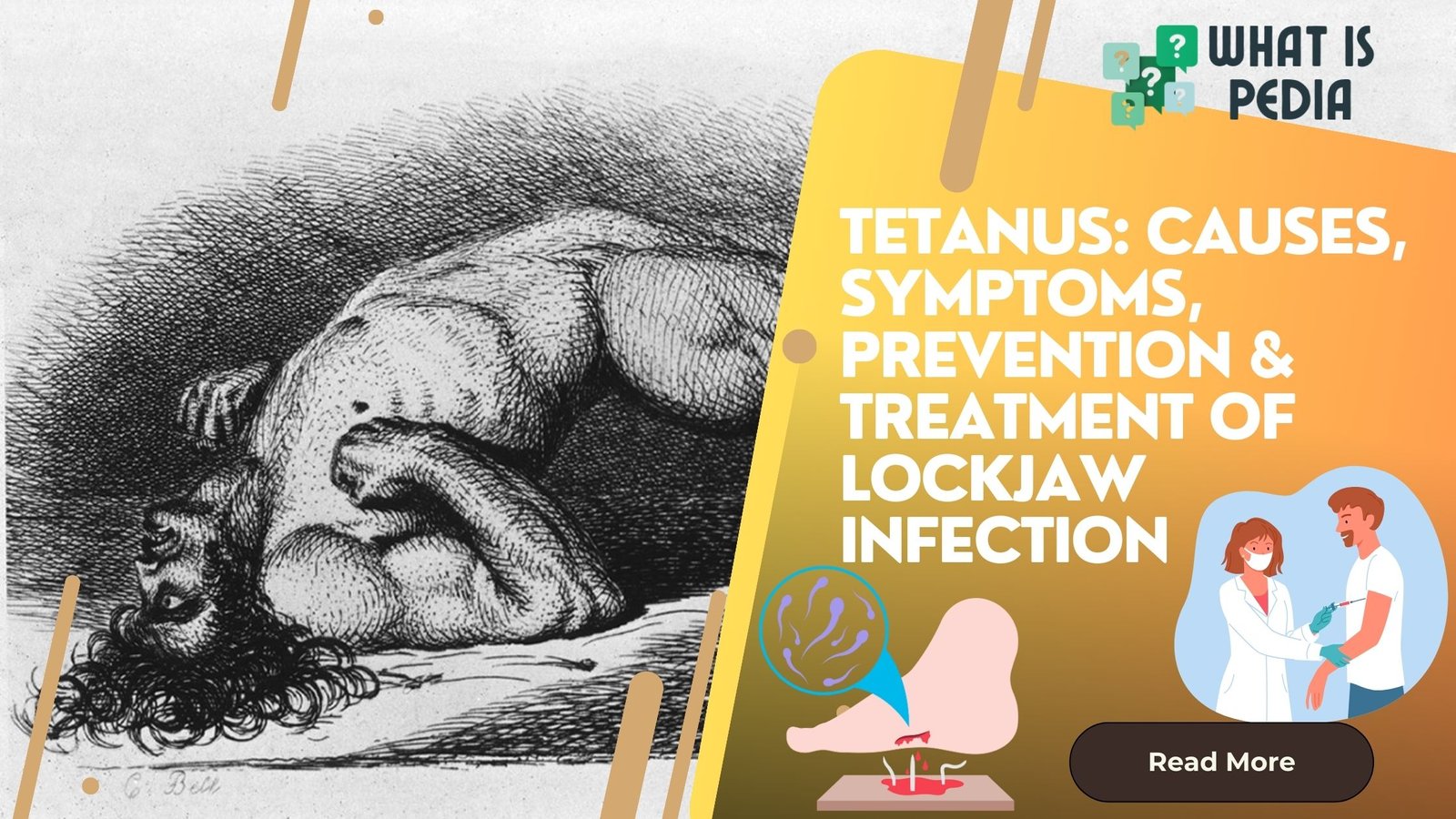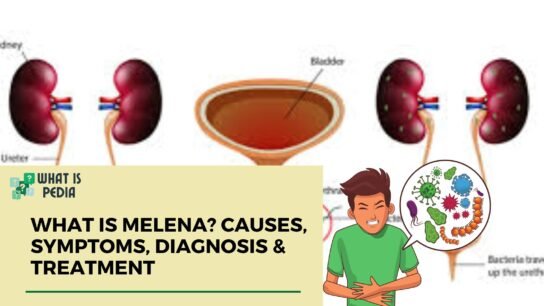Introduction to Tetanus
What is Tetanus? (Tetanus Meaning)
Tetanus, commonly called lockjaw, is a serious bacterial infection triggered by Clostridium tetani. The bacteria produce a neurotoxin that affects the nervous system, leading to painful muscle contractions, particularly in the jaw and neck. If left untreated, tetanus can be life-threatening.
Importance of Understanding Tetanus
Tetanus is a preventable disease, yet it continues to affect people worldwide, especially in regions with poor healthcare access. Understanding the causes, symptoms, and preventive measures can help reduce the incidence of this infection and save lives.
Common Misconceptions About Tetanus
- Tetanus only comes from rusty nails – While rusty nails can harbor tetanus spores, any deep wound, including burns or surgical wounds, can be a source of infection.
- Tetanus is contagious – Unlike many bacterial infections, tetanus does not spread from person to person.
- Tetanus vaccine gives lifetime immunity – Booster shots are necessary every 10 years to maintain immunity.
Causes of Tetanus
How Tetanus Infection Occurs
Tetanus is caused by the bacterium Clostridium tetani, which is found in soil, dust, and manure. When these bacteria enter the body through wounds, they produce a toxin that interferes with nerve function, leading to severe muscle spasms.
Clostridium Tetani: The Bacteria Behind Tetanus
Clostridium tetani is an anaerobic bacterium, meaning it thrives in environments with little to no oxygen. Once inside a wound, the bacteria multiply and release tetanospasmin, the toxin responsible for the symptoms of tetanus.
Tetanus Spores and Their Effect on the Body
Tetanus spores can survive in harsh conditions for years. When they enter a wound and find suitable conditions, they germinate and produce toxins that attack the nervous system, causing muscle stiffness and spasms.
Tetanus Symptoms: Identifying Lockjaw Infection
Early Signs of Tetanus
- Mild muscle stiffness, especially in the jaw and neck
- Difficulty swallowing
- Headache
- Irritability
Common Tetanus Symptoms
- Lockjaw (inability to open the mouth fully)
- Stiffness in the neck and abdomen
- Muscle spasms
- Sweating and fever
- Difficulty breathing
Severe Complications of Tetanus Infection
- Respiratory failure due to muscle spasms
- Broken bones from intense muscle contractions
- Severe pain and discomfort
- Death in extreme cases if left untreated
Types of Tetanus
Generalized Tetanus
The most common form, affecting muscles throughout the body. It starts with lockjaw and spreads to other muscle groups.
Localized Tetanus
Affects only the muscles near the site of infection. It is less severe but can progress to generalized tetanus.
Cephalic Tetanus
A rare form that affects the cranial nerves, usually after a head injury or ear infection.
Neonatal Tetanus
Occurs in newborns due to umbilical cord contamination. This type is prevalent in areas with poor maternal vaccination rates.
How Tetanus Spreads: Modes of Transmission
Deep Wounds and Puncture Injuries
Tetanus spores enter the body through:
- Cuts and puncture wounds
- Burns
- Animal bites
- Injection drug use
Rusty Nails and Myths Related to Tetanus
Rust alone does not cause tetanus; the concern is that rusted objects may be contaminated with tetanus spores from soil.
Tetanus in Newborns: Neonatal Tetanus
Neonatal tetanus occurs when non-sterile instruments are used to cut the umbilical cord or when the mother is not vaccinated.
Diagnosis of Tetanus
How Doctors Identify Tetanus Infection
Tetanus is diagnosed based on clinical symptoms, as there are no definitive laboratory tests for tetanus.
Clinical Symptoms vs. Lab Tests
- Clinical diagnosis relies on symptoms like muscle spasms and lockjaw.
- In some cases, toxin detection tests may be performed.
Tetanus Treatment Options
Medical Approaches to Managing Tetanus
- Wound care to remove contaminated tissue
- Muscle relaxants and sedatives
- Assisted breathing in severe cases
Tetanus Antitoxin and Immunoglobulin Therapy
- Tetanus Immune Globulin (TIG) neutralizes the toxin.
- Antibiotics like metronidazole kill the bacteria.
Importance of Hospitalization in Severe Cases
Patients with severe tetanus require ICU care due to the risk of respiratory failure.
Tetanus Prevention: How to Stay Safe
Tetanus Vaccine and Immunization Schedule
- DTaP Vaccine (for children)
- Tdap Booster (for adolescents and adults)
- Td Vaccine (every 10 years)
Importance of Tetanus Booster Shots
A booster shot is essential after potential exposure if more than five years have passed since the last dose.
First Aid for Wounds to Prevent Tetanus
- Clean wounds thoroughly
- Apply antiseptics
- Seek medical care if the wound is deep
Tetanus and Public Health
Global Statistics on Tetanus Cases
- The WHO reports over 30,000 cases annually, mostly in developing countries.
- Neonatal tetanus has declined due to vaccination efforts.
Efforts to Eradicate Tetanus Worldwide
- WHO and UNICEF campaigns for maternal and neonatal tetanus elimination
- Improved vaccination programs worldwide
Wikipedia Tetanus: What It Says About Prevention
Wikipedia highlights the importance of vaccination, proper wound care, and hygiene to prevent tetanus infections.
Conclusion: Why Awareness About Tetanus Matters
Summary of Key Points
- Tetanus is a serious bacterial infection but is preventable.
- Vaccination and proper wound care are crucial.
- Awareness can reduce cases and save lives.
Importance of Timely Vaccination
Regular immunization protects individuals and communities from tetanus outbreaks.
Final Thoughts on Preventing Tetanus
By understanding tetanus, its symptoms, and prevention methods, we can reduce its impact and move towards eradication.
🚀 Read More: Understanding Bipolar Disorders: Causes, Symptoms, and Management







